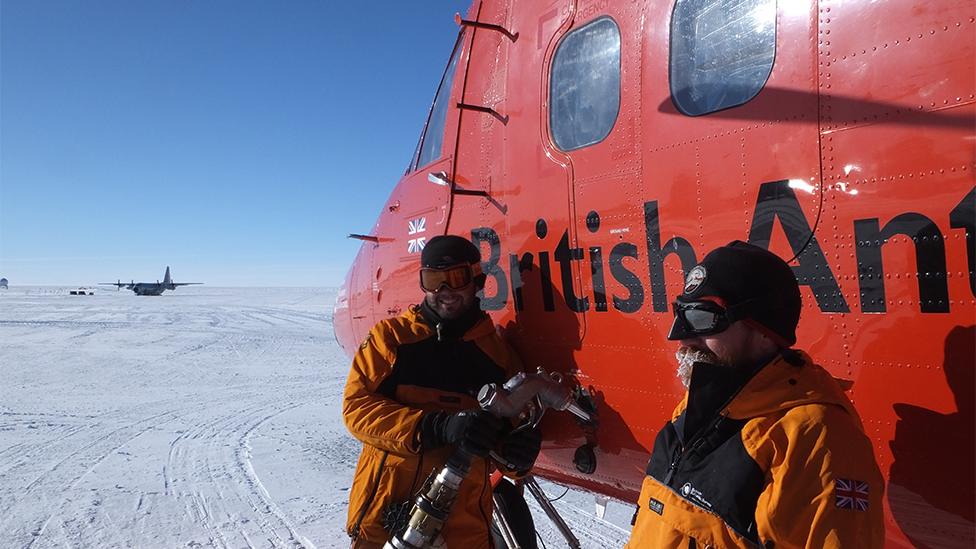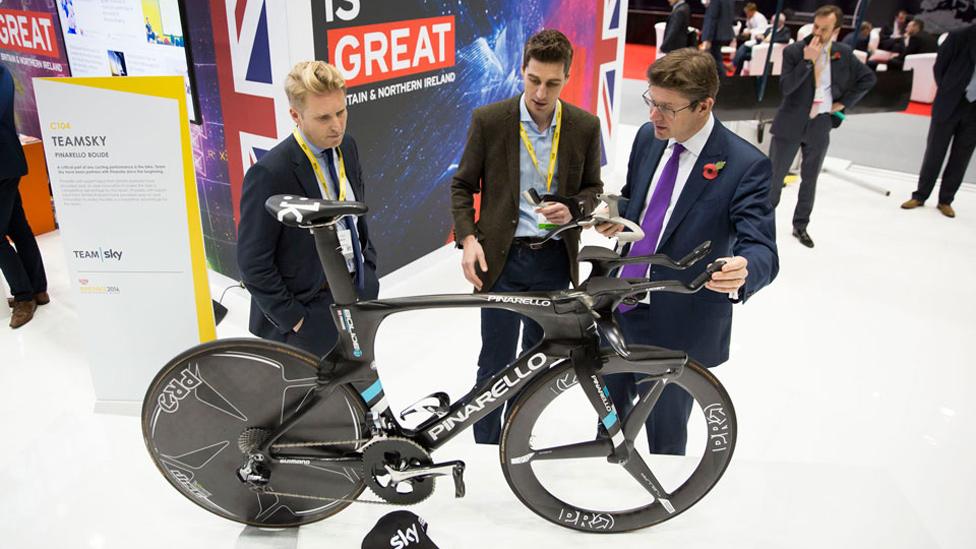Research body to fund humanitarian efforts
- Published

The One Ocean Hub will work with local communities to empower fishers to be involved with more sustainable practices
Britain's new research agency has announced it will spend £279m on new non-EU international collaborations.
The bulk of the money will go towards projects with scientists in developing countries to support humanitarian efforts.
But critics say that political priorities may be being funded at the potential cost of "blue skies" study.
The type of funding marks a new approach to increasing support for basic research that benefits society.
The chief executive of the UK Research and Innovation (UKRI) agency, which funds the science, Prof Sir Mark Walport, said: "From tackling climate change to preventing and treating infectious diseases, the search for knowledge is a global endeavour that requires collaboration between the world's best minds."
But James Wilsdon, who is professor of research policy at the University of Sheffield, described the announcements as "a touch disingenuous".
While supportive of the overall goals of UKRI's international funding, he said: "Let's call a spade a spade. With [no-deal Brexit] looming, the UK is on the brink of a move that will cause crippling damage to our science and research base.
"I would like to see UKRI, as our national research funding agency, talking more honestly about these challenges, rather than throwing its PR weight behind potentially unhelpful 'Empire 2.0' narratives about the future of the UK's collaboration with the rest of the world."

With demand for meat growing across the globe, the One Poultry Hub will look at issues created by the intensification of farming
UKRI has created a Global Challenge Research Fund to deliver the UN's Sustainable development goals.
The funding will be co-ordinated by 12 interdisciplinary hubs that will work across 85 countries with governments, international agencies and NGOs.
Prof Andrew Thompson, who is the executive chair of the Arts and Humanities Research Council and the international champion for UK research and innovation, said the aim of the new hubs was to fund research that would improve human health, promote gender equality and social justice, and protect the environment in poorer countries.
"The sheer size and the scale and ambition at which we're looking to address problems - like protracted conflict, or forced displacement, or epidemic disease, or food security and famine, or climate change - (is unprecedented).
"And hard wired into the fund is to very considerably strengthen partnerships with researchers in the UK and researchers in the global south."

Progress against the global goal to reduce stunting of children as a result of malnutrition by 40% by 2030 has stalled. The Action Against Stunting Hub will try to re-energise the effort
The projects are one of the first manifestations of the additional £2bn increase in funding for science announced by the then Chancellor George Osborne in 2016.
Prime Minister Theresa May also announced that the UK would aim to increase science spending yet further and increase public and private spending from 1.7% of GDP to 2.4% by 2027.
At the current rate of economic growth, this means an extra £6bn.
But Prof Wilsdon is concerned that UKRI has created a series of funds that can only be spent on the government's development aims, industrial strategy and other political priorities.
So, he argues, it is unclear how much, if any, of the new money will go towards the UK's high-quality blue skies research. This is work that has always been granted funding on the sole basis of excellence rather than its ability to tick any government boxes.
"While the projects themselves look great, there's a nagging concern in terms of the overall balance of the UK research funding system," Prof Wilsdon told BBC News.
"The influx of all this money is the product of government's desire to repurpose elements of the overseas aid budget in ways that bring more direct benefits to the UK.
"We need to be careful that it does not distort other priorities and maintain the ongoing squeeze on the amount of blue skies, discovery-led research across the system as a whole."

The UK and the US is looking to strengthen its partnership in the Antarctic
'Brexit fund'
UKRI has also allocated £79m for another new fund for international collaboration.
This will be spent on supporting research with scientists from 17 countries, including the US, India, China and South Korea. None of the money will support collaborations with EU research organisations
"The fund will give us greater agility and flexibility in partnering with some of the world's major national funders," said Prof Thompson.
"So, for instance, the fund will help us support new flagship challenges in China where we're partnering with the Chinese Academy of Social Sciences; the National Science Foundation, China; and their ministry of science and technology in agriculture... and put more wind in the sail of our collaborations with the US."
But Prof Wilsdon is concerned that there needs to be more focus on how the UK collaborates with European research partners after Brexit.
"Impressive and welcome as many of these partnerships are, it's striking that none of the new bilateral agreements listed involve other European countries, despite the fact that the volume of UK-EU research collaboration is far larger than with any other country or region," he said.
Follow Pallab on Twitter, external
- Published31 August 2017

- Published4 July 2017
